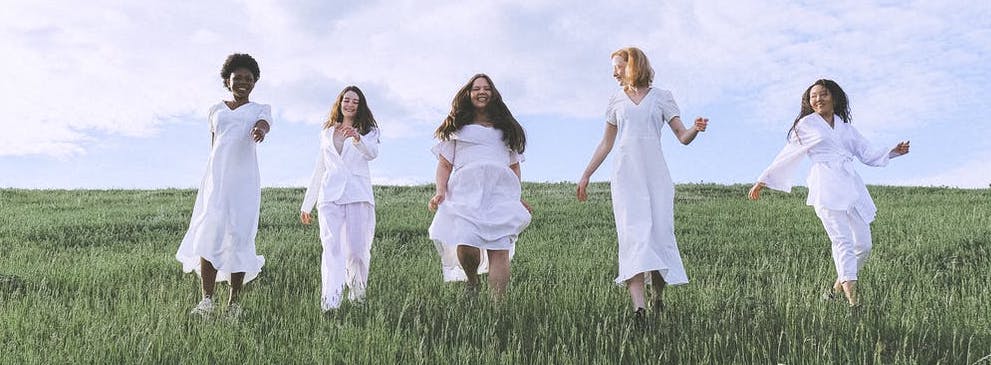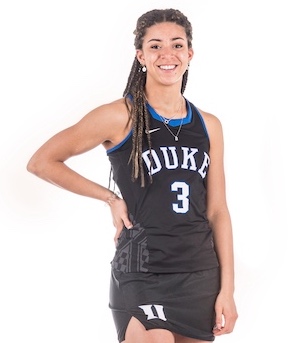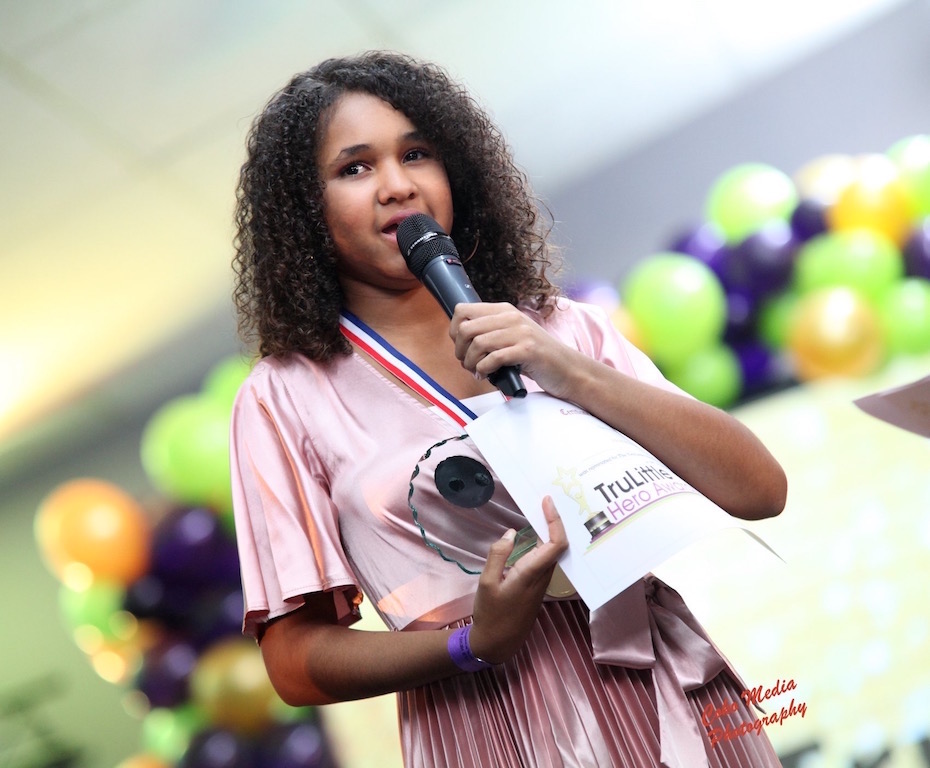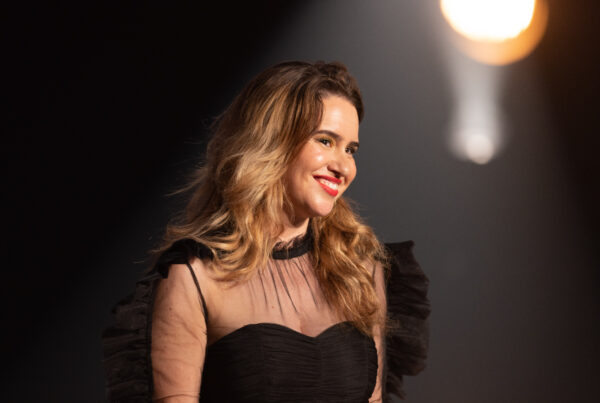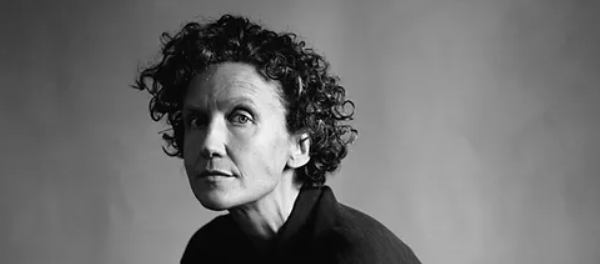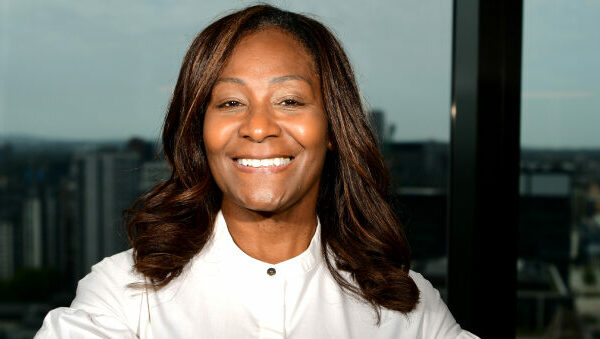We asked two young British women of colour, Darcy Bourne and Vanessa Sam, about their experiences of growing up as a minority race in the UK and what their hopes are for the future.
It’s important to include white women in this conversation and to hear what they feel their role is in supporting their sisters of colour. Martha Mador, Head of Enterprise Education at Kingston University and Executive Board Member (President 2019-2020) of Kingston Chamber of Commerce, adds her valuable contribution.
The names of inspirational and influential black women like Claudia Jones and Olive Morris have been in the news lately, but hearing the experiences of local, black British young women is just as valuable. Discussing ways we can become actively anti-racist is incredibly important, and Darcy Bourne and Vanessa Sam’s advice needs to be taken into account.
Darcy Bourne – England Hockey Player, U21
I’ve been playing hockey since I was 10, and before then I played every sport you could think of, from football to athletics. I just wanted to be involved in everything, because I always had the dream, since I can remember, of going to the Olympics. I didn’t care what sport it would be, but that was always my dream. I joined my local hockey club, Surbiton, in U12 and quickly fell in love with the sport. Since then I have represented and captained the England U16 and U18 teams, and played for GB EDP and England U21, as well as being a member of Surbiton Ladies 1s team.
Hockey has given me amazing opportunities, one of which was being offered sports scholarships to amazing American universities, such as Stanford, Michigan and Duke. Now that I’m leaving Wellington College, I’m excited to start my next chapter at Duke, and carry on with hockey to the best of my ability alongside getting a great degree and a life experience.
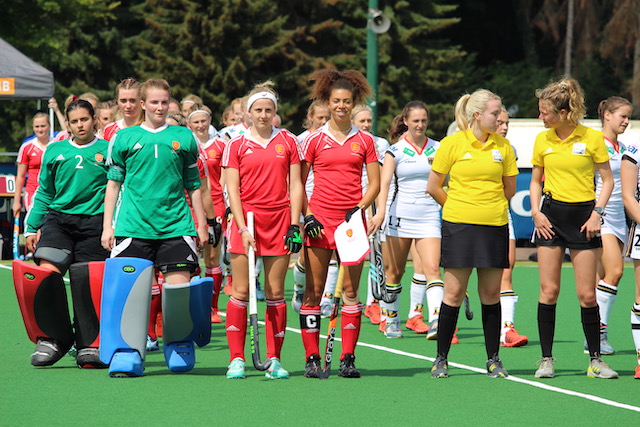
Vanessa Sam aka Inspiring Vanessa – motivational speaker, kid-preneur and author, all at age 13
She was only nine years old when she became one of the youngest motivational speakers in the UK. Vanessa’s mission is to inspire children and adults around the world to believe in themselves and have the courage to be whoever they want to be and she loves going to schools and speak about confidence and self believe. She dreams about making it to the Ellen Show and also to help homeless people by creating a “Hotel for Homeless”. Vanessa has been trained and mentored by several top international speakers and has shared the stage with the likes of Jairek Robbins, Eric Thomas, Eric Ho, Caleb Maddix, Andy Winson and Douglas Vermeeren, speaking in front of thousands of people around the word. She’s also been interviewed on London Live TV, BEBB Online TV and Chrissy Show on Sky TV, appeared in Stylist magazine, The Voice newspaper and many other magazines in UK, USA, Canada, and Australia. During the past three years she’s hosted London Kids Fashion Show, Croydon Has Talent, attended Screen Nation Awards as a guest presenter and been interviewed on the red carpet at WE DAY and the Screen Nation Awards.
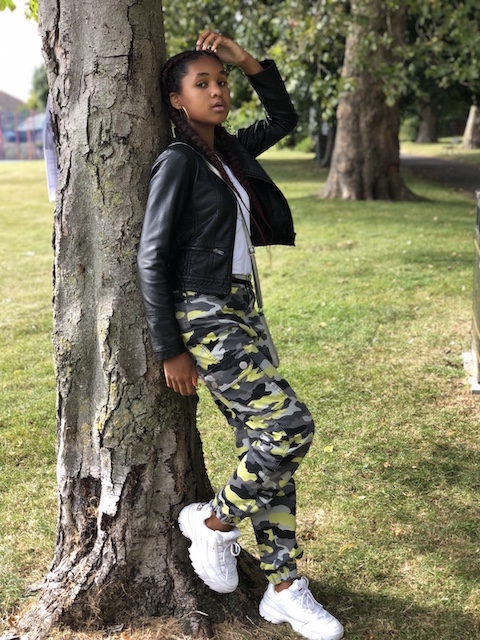
Have you experienced racism growing up in Britain and if so, can you share your worst memories and how that made you feel?
Darcy: “I’ve been lucky to grow up in an area where I haven’t had to experience much racism other than offensive jokes and name-calling, more so when I was younger. I’ve been called a monkey, and told that my natural curly hair is ugly. When I was younger this made me question myself, because I did stand out as different, but I have learnt to ignore these types of comments or just take it as banter. But it is a shame that girls like me have to normalise this sort of behaviour. However, I do not believe that my experiences of racism reflect British society. I know from my dad and other black people that many of them experience racism on a daily basis, due to the systemic racism ingrained from prejudices.”
Vanessa: “I have not experienced extreme direct or personal racism, but there have been times where people have stereotyped me as “white washed” or “trying to act black” despite the fact that I’m biracial. However, over the past few weeks, due to the Black Lives Matter movement, many sources online and on social media have made me 10 times more aware of what others are experiencing, some even losing their lives because of racism. I’ve learned about several accounts of racism in the UK, and how history has been completely flipped in many instances, allowing white representation at the expense of the rights of black people.”
Do you feel that we are turning the corner finally with the help of Black Lives Matter gaining such widespread support? And what changes do you feel are necessary at an institutional and government level to ensure that we see lasting changes that will make our society equal and fair for everyone?
Darcy: “I think that as horrifying and tragic the death of George Floyd was, the timing of it happening during a pandemic, when most people’s lives were on pause, allowed people all around the world to see the truth about racism and really open up their eyes this prevalent issue. The growth of the Black Lives Matter movement has been incredible, and when I’ve attended BLM peaceful protests, it’s been truly moving to see everyone coming together, no matter their race, to fight for what is right and to fight for equality. Many are really using this time to actively educate themselves on racism, which is great because that’s where the change starts, education. I think the history of colonisation and the slave trade should be in school syllabus and children should be educated about systemic racism. When people become more aware, they can change from being non-racist to becoming actively anti-racist. We also need to see more black role models, such as in sport and celebrities, and in positions of power, such as politicians, so it would be really encouraging to see changes implemented there. Change doesn’t happen over night, so we have to keep going until equality is reached, however long it takes.”
Vanessa: “I do feel that this generation is going to be the one to create a change and make the world a better place. As cliché as it may sound, we are the future, and we no longer want to grow up in a world, that hasn’t grown or changed with us. With the power of social media and leaders, the younger generation are truly starting to understand the power of their voice and the power we have together when we unite, as humans, and not as different races. We all bleed the same, under our beliefs, minds, thoughts, we all have the same skeleton. I think the changes that are necessary to ensure we will see lasting progress is to take people in power out of their offices. Not only in the UK, but also America. The president, our prime minister, racist police chiefs, the people who cover up racially influenced wrongdoings and even murders. It will take some time and a lot of determination, but one by one, we need to take these individuals out of their prime element and power. We all have a voice, and we have a choice on the way we use it. Unfortunately we live in a world where the people who use their voice negatively are the ones that are heard the most. Signing petitions and constantly speaking up about the movement will make a difference. This will be a revolution. It has to be.”
What are the most important things individuals can do in order for us to put our racial prejudices and injustices behind us?
Darcy: “Almost everyone will have one school mate, a distant friend or family member, or work colleague who is black, so each and every one of us should take the time to reach out to them, ask and learn about their experiences. It’s every person’s responsibility to educate themselves on racism, and change from not being racist to being actively anti-racist.”
You can follow Darcy at @grayshockey
Vanessa: “The first major step is to obviously start talking. Not just when the topic is brought up, but talk about it all the time. This way we can raise awareness for other people and encourage them to educate themselves and other people. Signing petitions and donating to charities, is what I believe to be two of the most powerful factors, as the petitions do slowly but surely push justice for many individuals forward. Donating to charities, also means funding a cause that supports victims or the movement. As much as I hate to say it, unfortunately, but realistically violence does make a change, as the government and local authorities do not take peaceful protesting seriously. However, we must MAKE them understand our voices, without violence. Protesting is a huge step towards change and the end of racial prejudices. I attended two BLM protests here in London- it was my first time ever going to a protest, and it was extremely powerful. We all gathered there because we all wanted, and still want, the same thing: a change, a revolution to occur. We must make Black Lives Matter an ongoing movement, not a trend or moment in time.”
Watch Vanessa’s Black Lives Matter vlogs or read about her experiences in her recent blog posts.
Inspire Motivate Believe. Inspiring Vanessa
www.inspiringvanessa.com
Martha Mador is the Head of Enterprise Education at Kingston University. Her team supports students and staff across the university who are in the early stages of starting a business, social enterprise, or who are just interested in exploring the potential of an idea. An experienced lecturer and course leader, Martha runs business growth programmes for the university, including the Enterprising Women’s Network. She is also an Executive Board member of Kingston Chamber of Commerce.
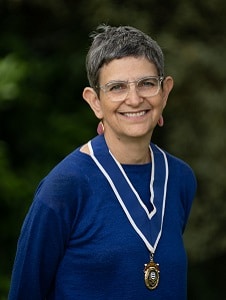
As a white woman of influence, what do you think us white women can do better in order to support our sisters of colour?
Martha: Be proactive in recognising practices that exclude, and change them. Question what’s going on in your organisation – and don’t either give or accept poor answers.
For instance: why are we not interviewing any women of colour for this job? “None applied” or “she couldn’t make the interview”. Why didn’t any apply? What did the ad say, and where was it promoted? What are the channels we can use, and what are the messages we need to use to find the great candidates who are out there? How could we have flexed the timing? What about an online interview? If you can’t think how, find out by talking to universities like Kingston or groups like the Athena network, who may be able to help you.
Set up a mentoring scheme for women, and particularly women of colour. Mentors can be external or internal, male or female. Make sure there is training for mentors and mentees alike, and that there is celebration, meetups, and opportunities to widen internal networks and make them more inclusive.
Set yourself targets for female, BAME inclusitivity in your organisation. And make them challenging.
Have you got any specific policies and/ or programmes in place in your organisation which help women of colour achieve their full potential? If not, do you feel that these initiatives are needed?
Martha: We are constantly reviewing our actions with regard to BAME student inclusion, attainment, and success. This is central to our educational offering, not least because 60% of our students come from BAME backgrounds. There is always more to be done!
Our Inclusive Curriculum Framework requires every course to address issues of inclusion and exclusion. It aims to enable students to see themselves reflected in the curriculum, and equip students with the skills to positively contribute to and work in a global and diverse environment.
Our Beyond Barriers mentoring scheme offers mentoring from more senior colleagues for BAME staff, and from community mentors for BAME students.
We were awarded Athena Swan Bronze Award because of our commitment to advancing the careers of women (and more broadly, trans-gendered people) in employment in Higher Education.
We were awarded Race Equality Charter Bronze award for our strength in identifying and addressing institutional and cultural barriers standing in the way of minority ethnic staff and students.
You might also enjoy reading:

